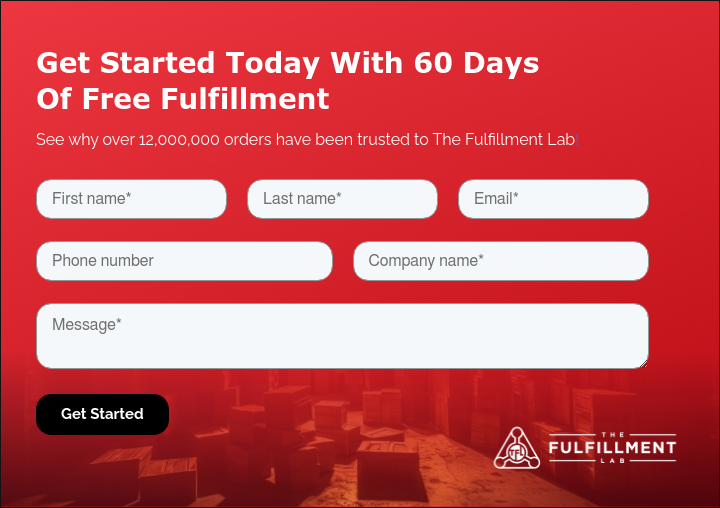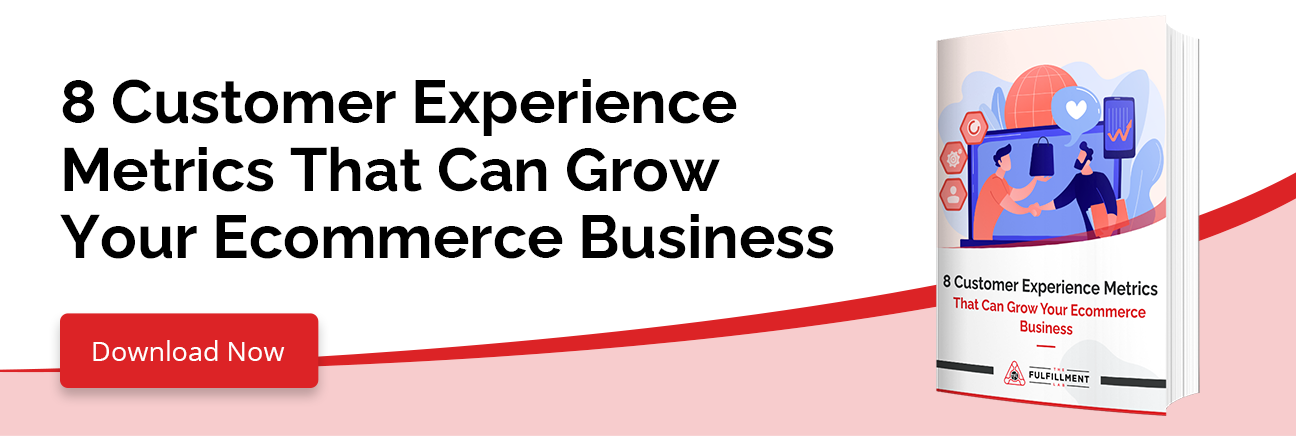How to Take Your Brick and Mortar Store Online
Flirting with the idea of diversifying your business by taking your brick-and-mortar store online? It may be a smart move to make! Purchase decisions for many of today’s consumers are increasingly being made through eCommerce, with mobile devices now representing the front door of many retail shopping experiences. In fact, more than 2.1 billion shoppers are expected to purchase goods and services online in 2021.
Of course, COVID only accelerated the shift to online purchasing; according to Forbes, eCommerce represented 11% of retail sales in 2019, and 14% of total sales by the end of 2020. So if you’ve been thinking of making a move to the digital realm, now is a good time to make it happen.
Brick and Mortar vs Online Business
Brick and mortar stores sell their goods or services from a physical location whereas eCommerce stores host their business online. Of course, there are many other differences between brick and mortar and online stores, and there are factors that consumers like about each.
What is a Brick and Mortar Business? Top 5 customer benefits:
- Ability to see, touch, and try on products
- No need to wait for delivery (or pay shipping costs)
- Can speak face-to-face with customer service
- Returning items is easier
- Gaining the in-store experience
What is an Online Business? Top 5 customer benefits:
- Ability to shop from anywhere at any time
- Easy price matching/comparison shopping
- No fighting traffic, crowds, or lines
- Easy to research products and read reviews
- No pushy salespeople
Since there are benefits to both business models, many brick and mortar stores consider expanding by going online, while some virtual stores may hope to eventually create physical stores. There’s even a third option that straddles the line between online and offline – ordering online but picking up curbside. It’s all about achieving the best of both worlds!

Top 6 Benefits of Taking Your Brick and Mortar Business Online
We’re talked about some of the benefits of online shopping for consumers, but what about business owners? Here are 7 reasons to consider taking your brick-and-mortar business to the internet.
1. Cost-effective Expansion
Launching an online store is much easier on the wallet than opening a new brick-and-mortar location because there are very few overhead costs. If you already have a website, you can self-host and sell through integration or just choose an affordable hosted platform and get started right away, even if you have little to no experience. More on this in a bit.
2. Wider Brand and Customer Reach
Taking your business online tears down geographical boundaries. Suddenly, shoppers across the county, and perhaps even the world, have access to your brick-and-mortar store through the internet. Of course, to really put your brand and products out there, you’ll need to follow SEO best practices and potentially place ads to improve site searchability and boost traffic (and sales).
3. 24/7 Sales Opportunity
How would you like to make sales while you sleep? With an eCommerce store, people across the globe in any time zone can make purchases while you make Z’s. You don’t need to be present to make a sale, or hire staff to work longer hours. With the right eCommerce platform, your products are available for sales around the world, around the clock.
4. More Customer Engagement
Creating a digital touchpoint with consumers makes it easier to engage with them and keep them coming back to both your brick and mortar store and your online store. You can integrate your store with social media, create a live chat, make product suggestions, and create automated email campaigns to keep the lines of communication open and keep your brand top-of-mind.
5. Easy Data Collection
Virtual solutions allow you to capture customer metrics that are more difficult to collect in the real world. With the right platform or software, you can identify a customer’s unique shopping habits, spending patterns, brand preferences, average spend, number of returns, and so on. Armed with this data, you can personalize your messaging toward different segments of your customer base to provide a better customer experience. You can also gear specific promotions toward specific audiences.
6. Improved Customer Satisfaction
More and more customers are taking their business online. By allowing your customers to make purchases from you online, you’re providing options and convenience, which in turn boosts satisfaction and loyalty. Just be sure to make the online shopping experience a good one, by offering good product descriptions and visuals, transparent pricing and shipping options, and a clear return policy.
How to Take Your Brick and Mortar Business Online
Now that you’ve decided the time is right to enter the online marketplace, how do you get started? Here are 5 considerations for taking your brick-and-mortar business online.
1. Choose a Platform
Platform selection is critical when taking your brick-and-mortar store to the digital world. If you already have a website for your brick and mortar business, you may just want to find a web hosting service with an eCommerce plugin that connects with your POS system. Simply add that plugin to your existing site to get started.
Don’t have an existing website? Then you’ll want to find an eCommerce platform that will integrate with your POS system for a seamless transition from brick and mortar to online storefront. Your store inventory will sync with your online store, making it easy to manage both sale channels. After you create a profile on their website, they take care of everything so you don’t have to worry much about the creation or technical aspects of your e-store.
Ten things you’ll want to consider when choosing a platform for your brick and mortar-to-eCommerce store:
- How much does it cost? Some platforms are free while others come with monthly or yearly plans. You want to be sure you’re able to afford the platform even if you’re not making a lot of sales right away, which isn’t uncommon for eCommerce startups even if there’s a brick-and-mortar flagship.
- Is it scalable? As your sales and SKUs increase, you want to be sure your platform can handle rapid scaling. Some platforms can only manage a limited number of SKUs.
- Is it easy to install and use? If you’re not tech-savvy and don’t have someone on staff who is, you’ll want the most user-friendly platform available.
- Is customer support readily available? Depending on the platform, customer support may be available 24/7, 9-5, or not at all.
- How flexible is its design? If you’re the hands-on type, you’ll want to choose a platform that allows you to get creative with your storefront, choosing from hundreds of themes. If design isn’t as important (but price is), you may choose a free platform with limited designs.
- Is it secure and compliant? With data breaches happening regularly, security is a top concern for customers. Make sure your platform has the appropriate SSL certificates and has other security protocols in place. You’ll also want to be sure the platform has PCI compliance, a necessity for financial transactions occurring online.
- Which payment methods are available? Customers expect to have various payment methods available to them when shopping online but not all platforms support them so do your due diligence when selecting one. Also, be sure the platform you choose supports your country’s currency.
- Is it mobile-friendly? Today, more shopping is done on mobile devices than laptops and desktops. So, you’ll want to choose a mobile responsive platform that automatically resizes regardless of screen size.
- Does it easily integrate? You’ll likely want a platform that will integrate with existing business software such as accounting and POS systems.
- Can it link to my social accounts? Most brick and mortar businesses will want the ability to create shoppable posts for their online inventory on social media platforms like Facebook and Instagram.
For more, check out our blog 10 Best eCommerce Platforms for Startups + Pricing Comparisons.
2. Managing Your Content
Who’s going to manage the content on your new online outlet? As a small business owner, this task may fall on you (at least at first). Or, you may have someone on staff who can take care of it or may choose to hire a third-party agency. No matter how it gets done, online content should be refreshed as often as possible to stay relevant and at the top of Google searches. This means creating new pages, adding new images and product descriptions, posting videos, moderating reviews, and perhaps even creating a blog where you can show authority in your product line to build trust and incite purchase.
3. Considering Online vs In-Store Inventory
Which products from your brick-and-mortar store will you sell online? There may be shipping restrictions on some items. Or, perhaps certain items are too fragile or oddly shaped to warrant the expense of packing and shipping. On the other hand, niche products that the average in-store customer probably wouldn’t be looking for but that someone may be searching for online are ideal to sell through your digital storefront.
4. Creating a Marketing Strategy
Perhaps you engage in local advertising or direct mail/couponing campaigns to promote your brick-and-mortar business. Once you go online, you’ll need to do some marketing as well to get the word out about your new digital touchpoint. What’s the best marketing strategy for you? SEO optimization and pay-per-click ads? Email campaigns? A referral program? Shoppable social media posts? There are a whole plethora of online marketing strategies to consider. The platform you choose may even be able to help or automate some of these options.
5. Managing Shipping and Fulfillment
Getting an online purchase to a customer isn’t as easy as handing it to them over the counter. Now, you’ll have to think about shipping and fulfillment. When you’re starting out, you might be able to manage packaging and shipping on your own, with multiple trips to and from your post office or carrier’s office. However, as your business grows and packing and shipping becomes unmanageable, you’ll want to consider a third-party logistics (3PL) company like The Fulfillment Lab.
The Fulfillment Lab offers a wealth of benefits to e-commerce companies (we covered many of them in our blog, 10 Reasons to Use a Fulfillment Center for Your Ecommerce Shipping). With The Fulfillment Lab, you’ll have access to:
- User-friendly, proprietary fulfillment software offering dynamic integration with eCommerce shopping platforms
- Mass-volume fulfillment with international shipping from 14 locations across the globe
- Fulfillment marketing offering customized packaging, inserts, labels, and more to grow brand awareness and cultivate brand ambassadors
- Lighting fast scalability as you grow or during high-demand periods
- Easy returns management (reverse logistics)
- A team of global fulfillment experts
You can read more about these individual services here, or if you have a specific question or need we’d love to speak with you. Contact us today.



